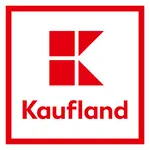History of Kaufland
Kaufland, a German-based hypermarket chain, was founded in 1984 by Dieter Schwarz as part of the Schwarz Group. The company's origins trace back to 1930 when Josef Schwarz, Dieter’s father, became a partner in the Südfrüchte Grosshandlung Lidl & Co., a wholesale fruit business. Over time, the business expanded into the food retail sector, leading to the establishment of the Lidl discount supermarket chain. Building on this success, Kaufland was launched as a hypermarket format to offer a broader range of products, including groceries, electronics, household items, and clothing.
Under Dieter Schwarz’s leadership, Kaufland experienced steady and significant growth. The chain expanded its footprint in Germany during the 1990s and gradually entered other European markets, including Poland, the Czech Republic, Slovakia, Croatia, and Bulgaria. Today, Kaufland operates hundreds of stores, known for their wide selection of products, competitive pricing, and large-scale shopping spaces that cater to diverse customer needs.
In recent years, Kaufland has focused on digital transformation and sustainability. The company introduced online shopping options and strengthened its logistics to keep up with the growing demand for e-commerce. Additionally, it has implemented various sustainability initiatives, such as reducing plastic waste, supporting local farmers, and investing in energy-efficient store designs. As part of the Schwarz Group, Kaufland benefits from shared resources and expertise with Lidl, further positioning the company as a leading player in the European retail market. Dieter Schwarz’s vision and leadership continue to influence Kaufland’s strategic direction and commitment to innovation.














